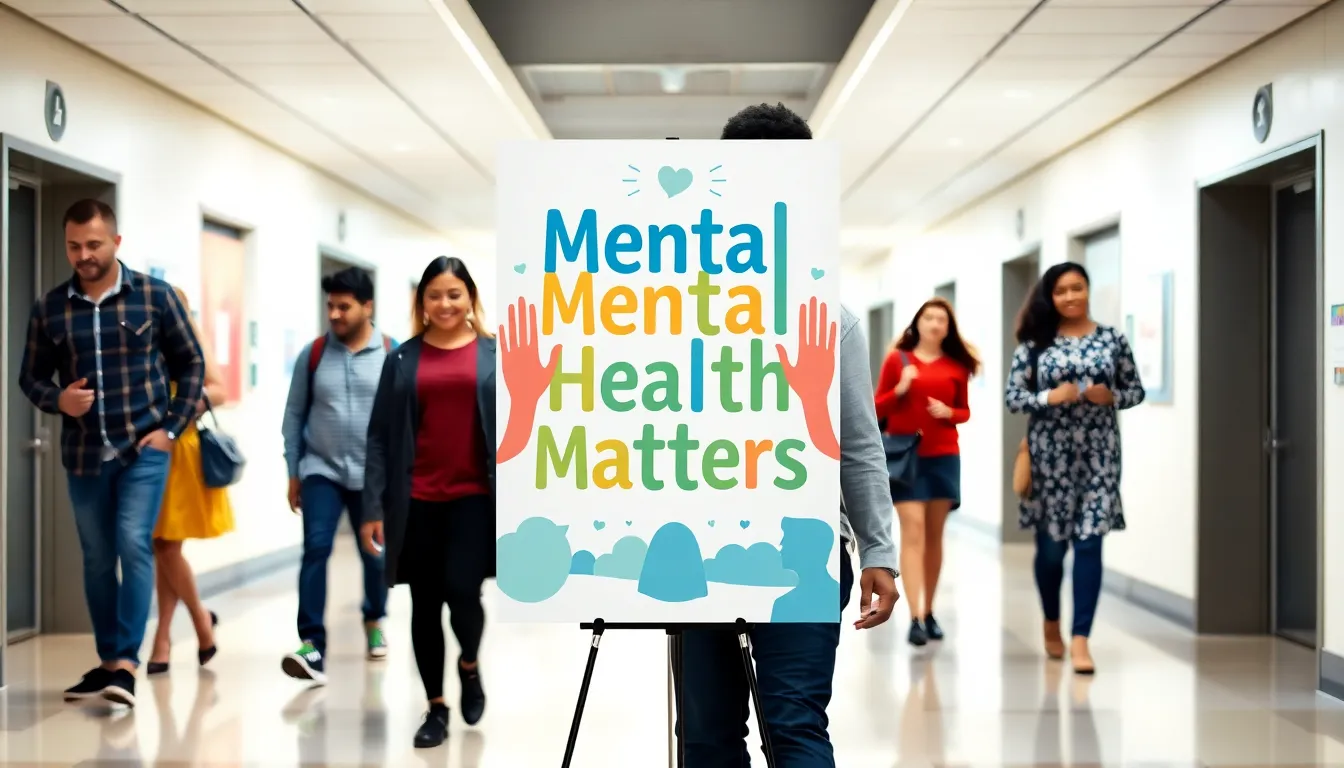Imagine scrolling through your feed and landing on a striking image that shouts, “Hey, your feelings matter.” How about a bright sunny graphic reminding you that it’s okay to ask for help? This is the magic of mental health matters images. They do more than catch the eye: they spark conversation and begin to dismantle the stigma surrounding mental health. In a world where the brightest smiles can hide the darkest struggles, these images are not just pretty pictures, they’re powerful tools for awareness and change. Let’s unravel why mental health imagery is crucial and how it can elevate the conversation around well-being.
Table of Contents
ToggleThe Importance Of Mental Health Awareness

Understanding Mental Health
Mental health encompasses emotional, psychological, and social well-being. It affects how individuals think, feel, and act. It also plays a significant role in how we handle stress, relate to others, and make choices. Given the pervasive nature of mental health issues, raising awareness is essential. Not only does this promote understanding, but it also encourages individuals to seek help when needed.
Impact Of Mental Health On Daily Life
The significance of mental health in daily life cannot be overstated. When mental health suffers, every aspect of life can be profoundly affected, from productivity at work to relationships with family and friends. Also, mental health problems can create a ripple effect, impacting physical health and the community at large. Raising awareness through imagery creates a platform for discussion, eventually leading to connection and support.
The Role Of Visual Stimulation In Mental Health
Types Of Images To Promote Mental Health
Visuals play a pivotal role in conveying messages quickly. Imagery related to mental health can take many forms: from uplifting quotes over serene landscapes to infographics that provide insight into mental health statistics. These visuals can evoke emotions, making complex information more digestible. Art therapy is another avenue through which images support mental health, allowing expression and introspection.
Case Studies Of Effective Mental Health Imagery
Consider the viral campaigns featuring poignant images that symbolize mental health struggles. Campaigns such as the “Bell Let’s Talk” initiative effectively use imagery to break down barriers. They illustrate personal stories and the realities of mental health challenges, encouraging open dialogue within communities. These case studies reveal how carefully curated imagery can foster empathy and understanding, making a considerable impact in the field.
Creating Your Own Mental Health Images
Tools And Resources For Image Creation
Crafting effective mental health imagery doesn’t require a degree in art. Numerous online tools simplify the design process. Platforms like Canva offer intuitive templates and free images that can serve as inspiration. Users can create impactful visuals tailored for their audience, infusing personal touches that resonate on an emotional level.
Best Practices For Sharing Images Online
Once your mental health images are ready, sharing them appropriately is crucial. Ensure the imagery follows ethical guidelines. For example, avoid using images that could be triggering to some audiences. Instead, strive for inclusive and positive visuals that promote well-being. Also, using hashtags, engaging captions, and emotional stories can expand the reach of your images, inviting more individuals into the dialogue.
Utilizing Social Media For Mental Health Awareness
Key Platforms For Sharing Mental Health Imagery
Social media is a powerful ally in raising mental health awareness. Platforms like Instagram and Twitter allow for rapid sharing and interaction. Visuals can go viral, reaching thousands of people. Utilizing these platforms strategically enables individuals to raise awareness around mental health, fostering communities of support through shared imagery.
Influencer Contributions To Mental Health Awareness
Influencers also play a crucial role in these discussions. Many have taken it upon themselves to advocate for mental health, using their platforms to share personal experiences alongside supportive imagery. Their reach means that a simple post can transform lives. When someone with a significant following discusses mental health openly, it encourages followers to engage, seek help, and continue the conversation.






